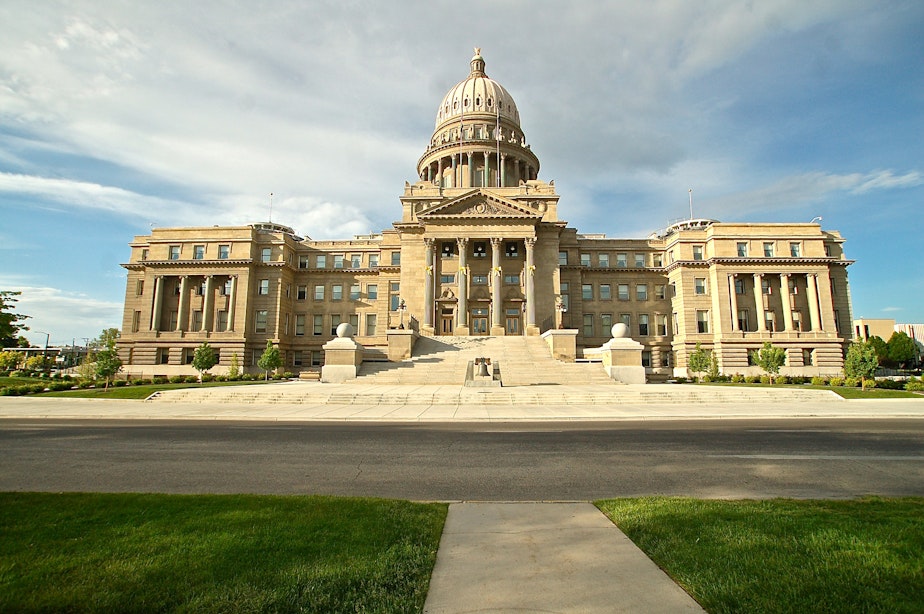Idaho's 'abortion trafficking' law prompts pushback from Washington leaders

Idaho Gov. Brad Little signed HB 242 into law on April 5. It outlaws helping a minor get an abortion without parental permission. The law includes restrictions on any Idaho resident from helping others travel to other states for abortion services. The bill calls this "abortion trafficking."
RELATED: Washington stocks up on abortion drug as federal ruling on access looms
Idaho law only allows abortions to be performed in cases of rape, incest, or when the life of the mother is in jeopardy. Violating the new law could result in two to five years in prison. Even if parents consent to an out-of-state abortion, people assisting with the travel could still be charged and have to prove in court that permission was given.
In a statement, Gov. Little said that the bill "does not criminalize, preclude, or otherwise impair interstate travel, nor does it limit an adult woman from obtaining an abortion in another state. Rather, the 'abortion trafficking' provision in the bill seeks only to prevent unemancipated minor girls from being taken across state lines for an abortion without the knowledge and consent of her parent or guardian."
The law is slated to go into effect in 30 days.
Sponsored
Washington Gov. Jay Inslee wrote a letter to Gov. Little before the bill was signed into law this week, urging him to veto the bill. Inslee said he feared "that our residents, in particular the women and girls of Washington, will be in grave danger if they travel to your state and find themselves in need of urgent reproductive health care services."
Noting that Idaho's health care providers are welcome in Washington, Inslee added, "make no mistake, Governor Little, the laws of another state that seek to punish anyone in Washington for lawful actions taken in Washington will not stand.”
Upon the bill's signing, Planned Parenthood pushed back against the law, calling it "despicable" and objecting to the use of the term "trafficking."
“For too long now Idaho lawmakers have slipped under the radar with some of the strictest anti-abortion laws in the country," Mistie DelliCarpini-Tolman, Idaho state director of Planned Parenthood Alliance Advocates, said in a statement. "Now, they are using an incredibly serious term like 'trafficking' to talk about young people traveling with trusted adults to access a legal procedure in another state. It’s despicable."
In Washington state, ever since the Dobbs decision in 2022, lawmakers have put up safeguards around the issue of abortion. Gov. Inslee has ordered the state patrol not to assist in any out-of-state investigations into people seeking abortion care. Washington voters legalized abortion in 1970, but lawmakers have recently been pushing for a state constitutional amendment to provide further protections.
Sponsored
Washington state does not require parental permission for an abortion, regardless of the age of the mother. Anti-abortion laws have already increased demand for care by Washington's abortion providers and reproductive health care clinics, where patients from Idaho have traveled to seek care. Restrictive abortion laws in other states have also caused health care providers to travel to Washington to get abortion trainings they need for their profession.
RELATED: Following Dobbs decision, abortion rates rise in Washington and Oregon
"This law should serve as a warning to everyone living in states with lawmakers that are hostile to this critical health care procedure: this could be coming to your state, too," DelliCarpini-Tolman said. "We’ve seen how fast harmful legislation can catch on and spread across the country. Here in Idaho, we’re going to do everything in our power to stop it. To our patients and the people who depend on us for care: we won’t stop fighting for you.”
Boise State Public Radio News' James Dawson contributed to this report.
KUOW's Dyer Oxley contributed to this report.




